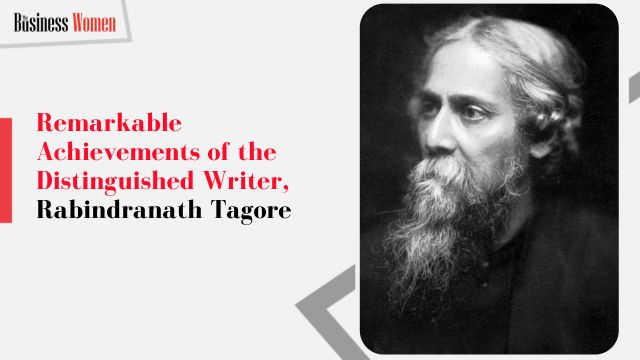Amplify Your Leadership Voice Worldwide
Join 7,000+ industry leaders sharing insights with millions of professionals globally
Join 7,000+ industry leaders sharing insights with millions of professionals globally

Rabindranath Tagore, an illustrious Indian Bengali writer, left an indelible mark as a prolific writer, influential artist, and accomplished musician. Born on May 7, 1861, and passing away on August 7, 1941, Tagore’s versatile talents encompassed a wide range of creative disciplines. An ardent learner and visionary, he also contributed significantly to education by establishing Viswa Bharati University, a tribute to his insatiable thirst for knowledge. As we commemorate Gurudev’s death anniversary, let’s pay homage by delving into his major achievements and contributions:
Rabindranath Tagore achieved an extraordinary milestone by winning the Nobel Prize in Literature in 1913. He held the distinction of being the first Indian and Asian to be honoured with this prestigious award. His literary prowess encompassed eight novels, four novellas, and an extensive collection of poetry that continues to resonate with readers worldwide.
The National Anthem of India, “Jana Gana Mana,” was penned by Rabindranath Tagore. The poignant poem was first sung on December 27, 1911, during the Indian National Congress session in Calcutta. After India’s independence, the first stanza was adopted as the National Anthem, immortalising Tagore’s contribution.
Tagore’s creative influence extended beyond India. He authored the national anthem of Bangladesh, “Amar Shonar Bangla,” in 1905 during the turbulent partitioning of Bengal. The anthem played a significant role during Bangladesh’s liberation war in 1971. Furthermore, the national anthem of Sri Lanka was inspired by Tagore’s work.
Rabindranath Tagore introduced the short story genre to Bengali literature. In 1877, he authored “Bhikharini,” the first-ever Bengali short story. His most renowned short story, “Kabuliwala,” remains a testament to his narrative genius.
In 1915, Tagore was conferred with a knighthood by the British government. However, following the tragic Jallianwala Bagh massacre in 1919, he renounced the title as a poignant protest against the brutality of British rule.
With a vision to revolutionise India’s education system, Tagore established an experimental school in Santiniketan. He crafted a unique curriculum centred around nature and holistic learning. This foundation grew into Visva Bharati University, renowned for its innovative approach to education.
In 1940, Oxford University bestowed upon Tagore an honorary Doctorate of Literature, celebrating his exceptional contributions to the world of letters. The honour was conferred during a special ceremony held at Shantiniketan.
Tagore’s creative spirit extended to painting, resulting in over 3,000 artworks during the final 13 years of his life. This prolific output showcased his enduring imaginative vigour even in his later years.
A maestro of songwriting, Tagore composed approximately 2,230 songs in his lifetime. His musical ingenuity transformed the landscape of Bengali music by infusing diverse musical traditions into his compositions.
Rabindranath Tagore’s legacy transcends time, encompassing literature, art, education, and music. His contributions have left an indelible imprint on the cultural tapestry of India and the world, reminding us of the transformative power of creativity and the pursuit of knowledge.
Join industry leaders who have shared their insights with millions of professionals globally.